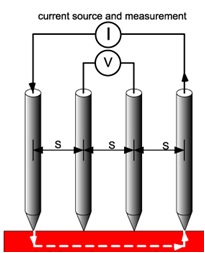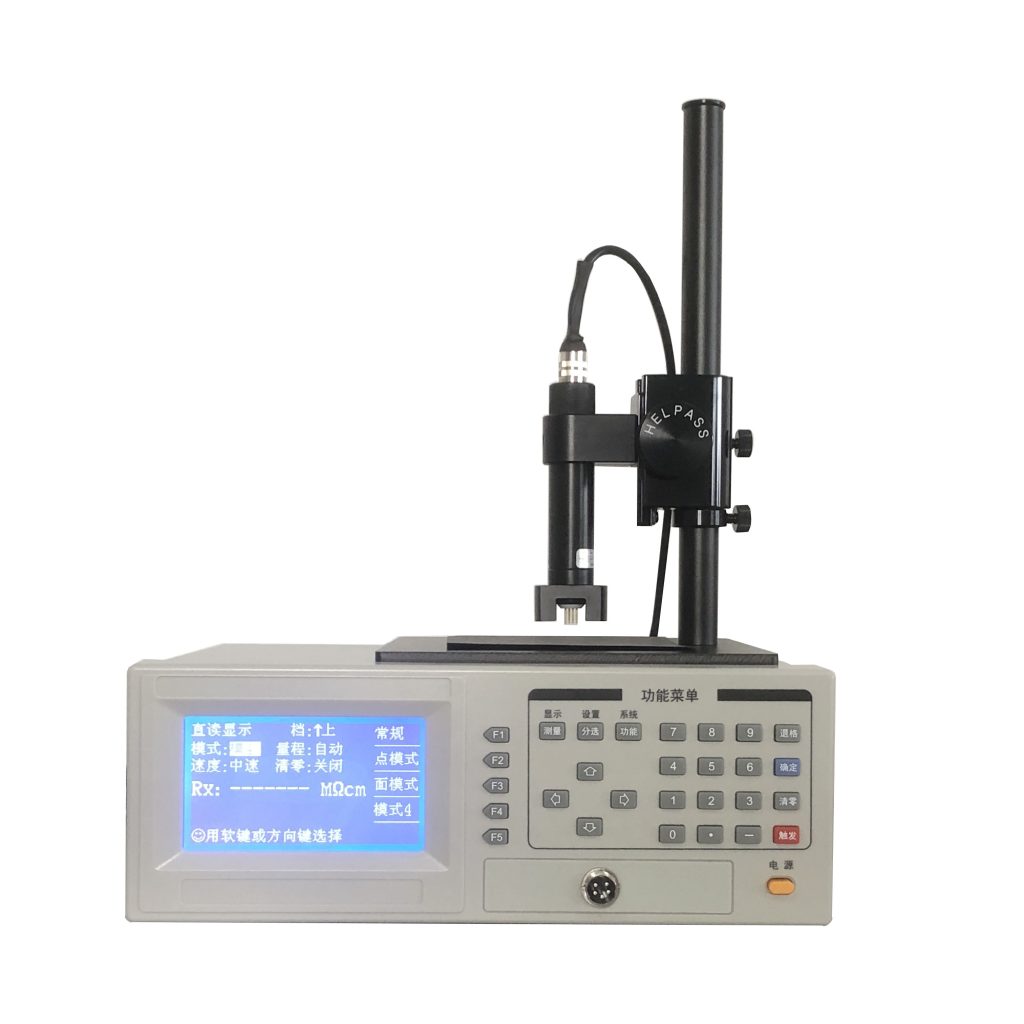Four point probes are used in nanofabrication to measure the resistive properties of conducting films which may include substrates, deposited films, and doped regions on a sample surface. The four-point probe method can be used to measure volume resistivity, surface resistivity, and conductivity.

The four-point probe method is the four-terminal measurement using four-point array probes and with RCF calculation.
It can be used to calculate volume resistivity and surface resistivity (sheet resistance).
Four point probe is used to measure resistive properties of semiconductor wafers and thin films. If the thickness of a thin film is known, the sheet resistance measured by four point probe can be used to calculate the resistivity of the material; conversely, if the material’s resistivity is known, the thickness of the thin film can be calculated.

